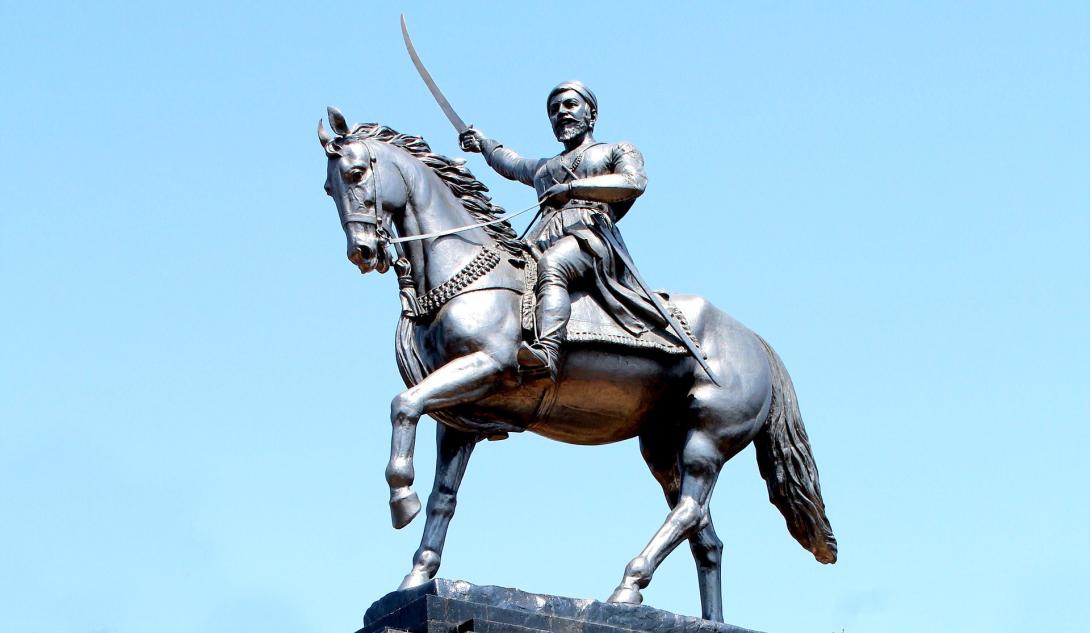
Babasaheb Purandare, who passed away yesterday at the age of 99, perhaps did more than anyone to spread the cult of Shivaji in Maharashtra in his long career. He was a very entertaining narrator, ballad singer, writer, even P.L. Deshpande found him fascinating in his early days.
D.D. Kosambi was the big dad of history writing in India. He and Purandare were born in the same month of July but no two people could be more different from each other.
But he was not a historian in that sense, he romanticised history. This was so unlike another D.D. Kosambi who also hailed from Pune and laid the foundations for a scientific writing of history. D.D. Kosambi was the big dad of history writing in India. He and Purandare were born in the same month of July but no two people could be more different from each other.
Shivaji folklore
Unfortunately, Kosambi died young at the age of 59 in 1966 while Babasaheb Purandare, the bearded popular narrator of Shivaji folklore completed 99 years on July 29, he is politically conservative, he is much feted with different awards including the state government’s Maharashtra Bhooshan. He is lionised by the political right wing and the coverage of his death in a section of the Marathi media was excessively uncritical and huge.
This is not to belittle Mr Purandare but it is sad while he is such a phenomenon, Kosambi is remembered only in a small circle. Some consolation came in terms of two online lectures in Kosambi’s memory. One by Umesh Bagade of Babasaheb Ambedkar university in Aurangabad on Kosambi’s multidisciplinary approach and the second by Shraddha Kumbhojkar of Savitribai Phule university of Pune on Kosambi’s Exasperating Essays.
Kosambi underrated?
Pune university has also done well to publish these essays in Marathi very ably translated by the talented creative writer Avadhoot Dongare. Prof Sharaddha said Kosambi wrote objectively, he praised Jawaharlal Nehru’s Discovery of India , his quote on Karl Marx but also pointed out shortcomings. A collection of Kosambi’s essays was also published in the 1980s by Mrs A.J. Syed, former head of the department of history, Mumbai university and wife of Ayub Syed, former Current editor and once Communist sympathiser.
Perhaps unknown to many is the fact that among the earliest who took a keen interest in publishing Kosambi was Prof R.P. Nene who used to meet Kosambi as a student and a fan in the 1950s and then continued a long association with him. He has given a fascinating interview to well known science propagator Arvind Gupta on Kosambi.
Western historians biased
But the most fascinating recent discovery in history writing for me was Priya Satia of whom Amitav Ghosh made a very laudatory reference in a recent article for Scroll. She is a formidable scholar and critic of imperialism and what is more she has such a wonderful grasp of Urdu and Punjabi literature and liberally quotes from it. Something very special for one living in the U.S, since childhood.
Western historians have functioned as defenders of imperialism and lacked objectivity
One of her main arguments is that Western historians have functioned as defenders of imperialism and lacked objectivity, some of the imperialist powers were democratic at home and despotic abroad. The historians became sort of drivers of imperialism, provided for example a moral scaffolding for the war on Iraq. Similarly, it can be argued that some of the popular, biased type of history writing on the Maratha period has resulted in providing ammunition to politicians for promoting feudal values.



